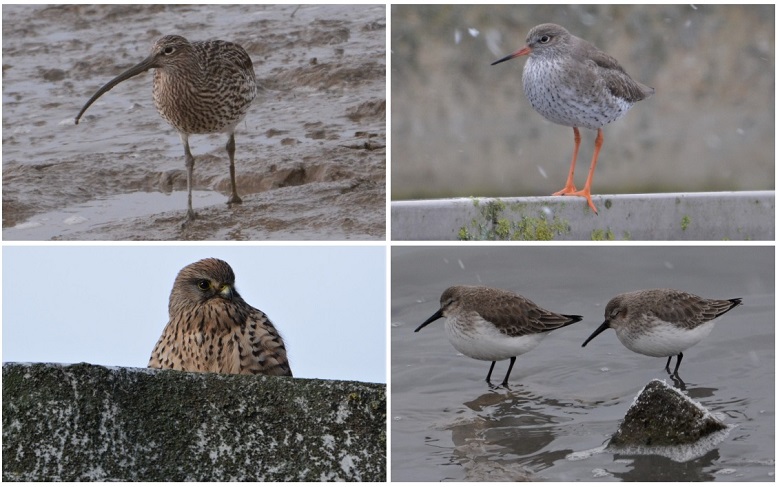Endangered bird one of 148 species at ‘wildlife jewel’ sewage works
Wednesday 3rd March 2021 10:50

Clockwise, from top left: curlew, redshank, dunlins, kestrel
One of Britain’s most endangered birds has been pictured at Europe’s largest sewage treatment sites in East London.
The curlew – with its distinctive long downcurved bill – is one 148 species of bird recorded to date at Thames Water’s Beckton Sewage Works in Barking.
Waders such as dunlins, sandpipers, oystercatchers, redshanks and godwits, birds of prey including sparrowhawks and kestrels, and seabirds like the Caspian gull have also been seen at the 300-acre site, which treats the waste of over four million Londoners.
Celebrating World Wildlife Day today, Ian Crump, Thames Water biodiversity officer, said: “Sewage treatment sites are great places for birds to thrive – they’re near rivers and streams where there’s an abundance of insects to eat, and the sites themselves have various ponds and lagoons, along with areas left to grow wild.
“We had a rare green sandpiper at Basingstoke a few weeks ago, and now to see a curlew at Beckton is really something. Beckton is on the tidal end of the Thames and, along with our Beckton Creekside Nature Reserve next door, has reedbeds for a variety of warblers and mudflats perfect for waders.
“We’ve been monitoring bird species at Beckton for many years, with more than 148 to date and 64 species already recorded in 2021.”
The curlew is Europe’s largest wading bird, feeding on worms, shellfish and shrimps in estuaries and moors. Although there are 66,000 breeding pairs in the UK, with 140,000 individuals wintering here, its population is in severe decline, putting it on the ‘red’ list of conservation importance.
Danny Regan, Beckton Creekside Nature Reserve manager, said: “The nature reserve, sewage works and riverside walk really are a jewel in London’s wildlife crown.
“As well as some amazing birds, it’s also a haven for grass snakes and other reptiles, rabbits, bank voles, shrews and field mice, and butterflies and insects can be found year-round.”
Beckton Sewage Works generates more than half the power it needs through its wind turbine and other renewables and will be connected to London’s new super-sewer, the 25km Thames Tideway Tunnel.
Beckton STW in London
